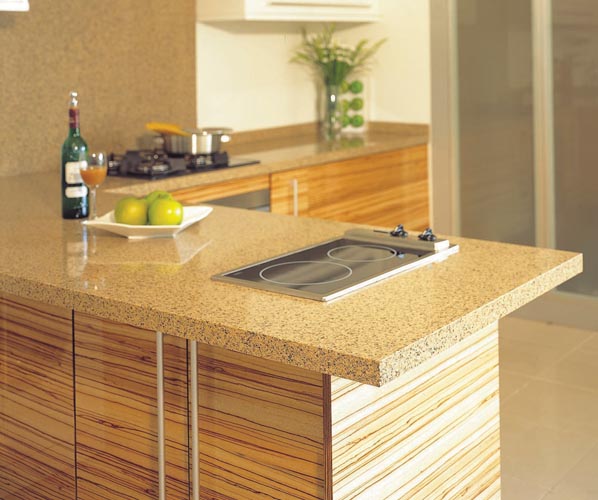Hazardous Countertops? Homeowners concerned over health dangers from granite surfaces

|
For the past decade granite has been the automatic choice for consumers looking for premium natural stone countertops delivering beauty, style and elegance.
Unfortunately, over the past several months the main thing granite surfaces have been able to deliver for some of its current and potential customers is grave concern. That's because in homes across the country Geiger counters are measuring dangerous levels of radon and radiation emitting from granite countertop surfaces.
According to a recent New York Times article -- "What's Lurking in Your Countertop?" -- the Environmental Protection Agency (EPA) has been receiving calls from radon inspectors as well as concerned homeowners all over the country about granite countertops with radiation measurements several times above background levels.
Radon is the second leading cause of lung cancer after smoking and is considered especially dangerous to smokers whose lungs have already been affected. Children and developing fetuses are vulnerable to radiation, which can cause other forms of cancer.
Ironically, it's the success of the granite industry that has led to this situation. Popularity and demand of granite countertops has grown almost tenfold and so has the types of granite available. Increased sales and volume has led to an increase in variety of granite surfaces available including more exotic and striated versions.
According to the New York Times article there have been more reports of "hot" or potentially hazardous countertops in recent years especially from these more exotic types.
As a result, some granite owners are ripping their countertops out not willing to take any unnecessary health risks, while other potential customers are seeking alternative surfaces like Quartz and solid surfaces.
"Quartz surfaces are growing in popularity because they have the appearance of natural stone, without any of the drawbacks associated with materials such as granite," said Mark Hanna, President of Leeza Distribution Inc., (leezadistribution.com) one of North America's leading distributors of HanStone Fine Quartz Surfaces.
In fact, HanStone is accredited with Greenguard environmental certification for low emitting products. Unlike granite, HanStone quartz surfaces never need to be sealed and emit low to no emissions of toxic chemicals into your home environment. Hanna said the Greenguard certification is becoming an important requirement for consumers looking for premium countertops.
Quartz is also a non-porous material, which means it will not promote the growth of mold, mildew or bacteria. One popular brand, Silestone quartz, is taking bacteria protection one step further as the only quartz countertop available to offer built-in Microban (pesticide) antimicrobial protection. However, many consumers view this additional pesticide protection as more of a health risk than a benefit.
"We've had calls from people who actually cancelled their quartz countertop orders from another company and contacted our dealers once they discovered the countertops they selected contained Microban," said Hanna, whose HanStone Quartz surfaces are also accredited with NSF 51 certification. "As a healthy and environmentally friendly choice, HanStone Quartz countertops can be used in virtually any indoor surface application in kitchens and bathrooms, including floors, countertops, island tops and backsplashes."







